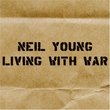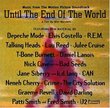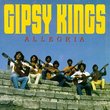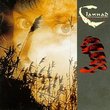| All Artists: Nico Muhly Title: Mothertongue Members Wishing: 4 Total Copies: 0 Label: Brassland Records Original Release Date: 1/1/2008 Re-Release Date: 7/22/2008 Genres: Dance & Electronic, Jazz, Pop, Rock, Classical Styles: Techno, Avant Garde & Free Jazz, Historical Periods, Modern, 20th, & 21st Century Number of Discs: 1 SwapaCD Credits: 1 UPCs: 632662556825, 5060096473404 |
Search - Nico Muhly :: Mothertongue
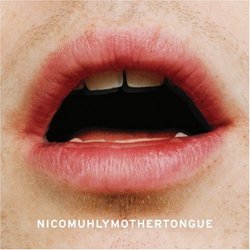 | Nico Muhly Mothertongue Genres: Dance & Electronic, Jazz, Pop, Rock, Classical
Boomkat - ''Within the space of his short, yet incredibly illustrious career, Nico Muhly has contributed his talents as an arranger to recordings by Bjork, Bonnie 'Prince' Billy, Rufus Wainwright and The National, while al... more » |
Larger Image |
CD DetailsSynopsis
Album Description Boomkat - ''Within the space of his short, yet incredibly illustrious career, Nico Muhly has contributed his talents as an arranger to recordings by Bjork, Bonnie 'Prince' Billy, Rufus Wainwright and The National, while also enjoying a successful sideline as a composer in his own right, presenting works in conjunction with a variety of high profile orchestras - he even finds time to work as a performer and conductor for Philip Glass on his various film soundtracks. Mothertongue is the sophomore solo effort from Nico Muhly, following up on the wide acclaim of his 2006 debut, Speaks Volumes, and marking a further step towards genre cross-pollination and a more avant-garde approach to the conventions of composed music. The album is segmented into three different suites, the first (itself titled Mothertongue) being an exercise for ensemble and choir, which begins with female vocalists chanting numbers and dispensing information as if sifted through some granular synthesis plugin. In addition to the predictably luscious string section backdrop, Muhly injects some electroacoustic presence into the mix on 'Shower', via watery samples, and chiming glockenspiel and piano strikes, mirroring the raindrop effect given by the recordings. This first cycle of pieces concludes with 'Monster', the final component of the Mothertongue suite, characterised by bold, percussive chord changes and an awkward time signature, all made to sound thunderous under the supervision of producer Valgeir Sigurdsson, who brings a heaviness to the sound balance you'd be unlikely to find on many other recordings in the field of modern composition. The next suite is titled Wonders, and retains the female choir from Mothertongue, this time setting it against harpsichord, percussion and brass arrangements, often sounding quite playful in its rhythmic instability and occasional ventures into discord. The final sequence, titled 'The Only Tune' is a collaboration with fellow Bedroom Community artiste, Sam Amidon, who helps fashion an exended folk narrative, beginning with the banjo plucking of 'The Two Sisters' before shifting into less familiar territory on the bluegrass operatics of 'The Old Mill Pond'. By this point, any notions of comfortable, conservative Americana are out the window and you're confronted by a highly experimental clash of vastly different musical schools, before finally, 'The Only Tune' restores a semblance of normality with a lovely piece of widescreen folktronica. Quite unlike anything you're likely to encounter, this second album from Nico Muhly shows even greater ambition than its predecessor, establishing a language that's far removed from the kind of easy-going post-Blue Notebooks modern composition that's become so widespread. Very highly recommended.'' Similarly Requested CDs
|
CD ReviewsIt may take getting used to RALPH P. GRAY | New york, NY United States | 05/06/2009 (3 out of 5 stars) "This will be a short, general review based on 2 CD's. Muhly is new for me. I find some of his works intriguing; others less so. Some are sprightly - make me feel bouncy & cheerful; others seem too minimalist for my taste & annoy me a little. But then he suddenly changes course & I am "with him" again. Overall: I think he is very worth while following & seeing how he develops. His is unquestionably a bright mind & spirit. " Perfectly ADD Chicago Modern | Chicago | 05/04/2010 (5 out of 5 stars) "This is...this is....this...this...this...pretty....pretty....pretty....impulsive......impulsive......impulsive......propulsive......pro...pro...pro.pro.pro......pulsive......loopulsive.....loopulsive...i .. i .. i ... i am.....seriously.....fun....fun...thoughts to have ... and exist...inside inside the ... head of .... ... . Nico Muhly for awhile."
|

 Track Listings (10) - Disc #1
Track Listings (10) - Disc #1